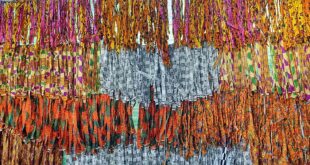It is a common practice of Western journalists to compare the economic situation of Ghana today with that of South Korea to illustrate how backward Africa still is in comparison with the other parts of the world. The basis for comparing the two countries is the similar size of their economies at the time Ghana gained independence in 1957. Our Accra-based Senior Contributing Editor, Jojo Cobbinah, argues that the comparison is unfair as the differences between the two countries sixty years ago were far greater that the economic statistics revealed.
Looking back, it is true that Ghana, with her natural and human resources, could have done better economically. Foreign journalists do not tire telling Ghanaians how incapable they are, since their country was at par with South Korea at independence but has been thoroughly trounced by the latter today.
The trouble with such statements is that no matter how often they are repeated, they will never become true. In effect, the comparison is unfair and stinks so much that I hope my compatriots will not let it dishearten them. Ghana’s economy may have had the same volume as that of South Korea, which was just emerging from a disastrous civil war in 1957, but it is not true that both countries were at the same stage of development.

These critics who mostly want to rationalise colonialism, do not even bother to take cognisance of where the two countries are coming from. Unlike Ghana, which is an artificial creation that actually came into existence in 1957, Koreans have existed as a people with clear boundaries, identity, language and culture for over a thousand years. Unlike Ghana, Korea’s coastline is not littered with slave forts and castles bearing witness to a four-hundred-year rape of her economic, social, moral and human resources. And unlike Korea, which saw America pumping billions of dollars into her economy as a prop against the Communist threat in the Cold War years, Ghana, after independence, was mostly sabotaged by the same United States that feared Kwame Nkrumah’s political leanings. There is no doubt that with the same financial support, Ghana would have been in a far better shape today.
What the comparison does show, as former World Bank boss Paul Wolfowitz once remarked, is that if South Korea can do it so fast, Ghana can also do it!
Of course, solving a lot of Ghana’s problems will require more than national consensus. Future governments will have to work faster, have a clear developmental strategy and a concrete agenda for addressing the problems that keep holding this rich and beautiful country back.
At sixty, the problems awaiting remedy are still manifold. Her qualified people continue to flee, the cost of living is high, a largely impoverished populace continues to clamour for a better life, the lacklustre performance of government is discernible and many people are beginning to feel that there is a need for real change. Nothing surprising for a developing country like Ghana, which is impatient to move forward.
 THE AFRICAN COURIER. Reporting Africa and its Diaspora! The African Courier is an international magazine published in Germany to report on Africa and the Diaspora African experience. The first issue of the bimonthly magazine appeared on the newsstands on 15 February 1998. The African Courier is a communication forum for European-African political, economic and cultural exchanges, and a voice for Africa in Europe.
THE AFRICAN COURIER. Reporting Africa and its Diaspora! The African Courier is an international magazine published in Germany to report on Africa and the Diaspora African experience. The first issue of the bimonthly magazine appeared on the newsstands on 15 February 1998. The African Courier is a communication forum for European-African political, economic and cultural exchanges, and a voice for Africa in Europe.









